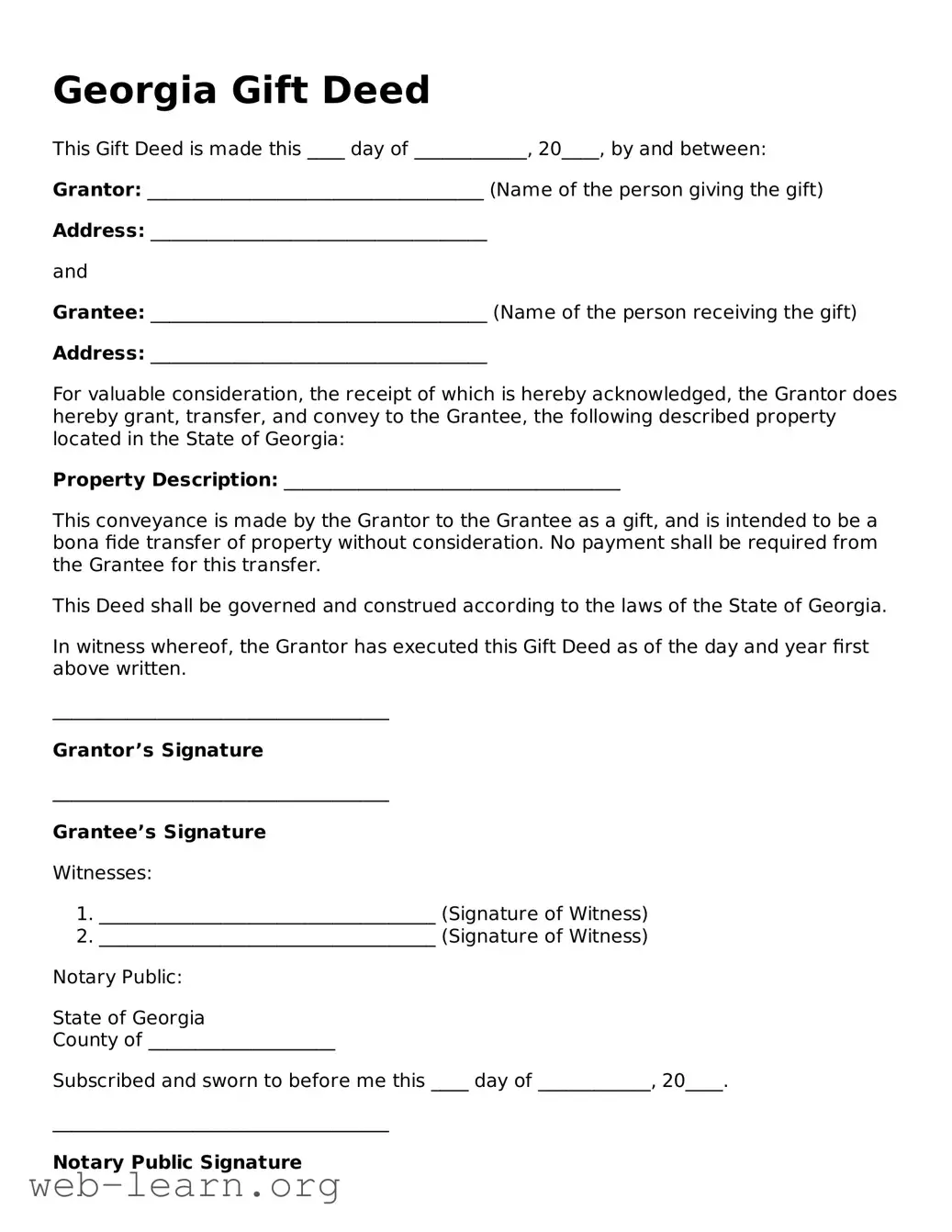Georgia Gift Deed
This Gift Deed is made this ____ day of ____________, 20____, by and between:
Grantor: ____________________________________ (Name of the person giving the gift)
Address: ____________________________________
and
Grantee: ____________________________________ (Name of the person receiving the gift)
Address: ____________________________________
For valuable consideration, the receipt of which is hereby acknowledged, the Grantor does hereby grant, transfer, and convey to the Grantee, the following described property located in the State of Georgia:
Property Description: ____________________________________
This conveyance is made by the Grantor to the Grantee as a gift, and is intended to be a bona fide transfer of property without consideration. No payment shall be required from the Grantee for this transfer.
This Deed shall be governed and construed according to the laws of the State of Georgia.
In witness whereof, the Grantor has executed this Gift Deed as of the day and year first above written.
____________________________________
Grantor’s Signature
____________________________________
Grantee’s Signature
Witnesses:
- ____________________________________ (Signature of Witness)
- ____________________________________ (Signature of Witness)
Notary Public:
State of Georgia
County of ____________________
Subscribed and sworn to before me this ____ day of ____________, 20____.
____________________________________
Notary Public Signature
